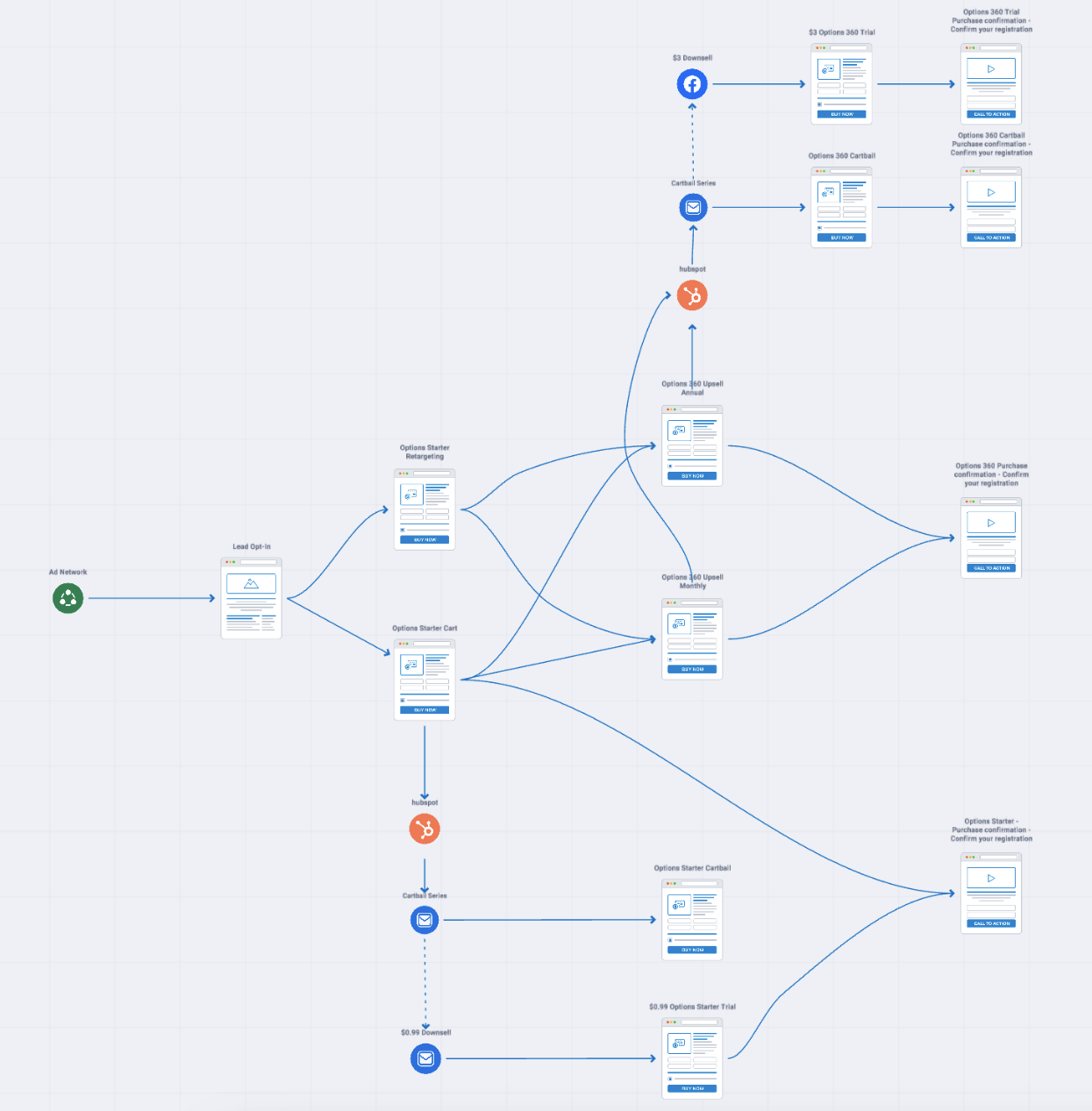In the world of marketing, success is often measured by the impact a company’s efforts have on their bottom line. However, measuring marketing effectiveness can be a challenging task. With so many different metrics available, it can be difficult to determine which ones are truly indicative of success. But successful companies have discovered the one metric that truly matters – the key metric that helps them gauge the effectiveness of their marketing efforts. In this article, we will explore the importance of metrics in marketing, how to identify the key metric for marketing success, and how successful companies utilize this metric to improve their marketing effectiveness.
Understanding the Importance of Metrics in Marketing
Metrics are the measurable values that indicate the success and impact of marketing efforts. They provide valuable insights into the effectiveness of various marketing strategies and tactics, allowing companies to make data-driven decisions and optimize their marketing campaigns. Metrics serve as a barometer for performance, helping marketers understand what works and what doesn’t.
The Role of Metrics in Business Success
Metrics play a crucial role in the success of a business. By tracking and analyzing marketing metrics, companies gain a better understanding of their target audience, their preferences, and the effectiveness of their marketing campaigns. This knowledge enables them to allocate resources effectively, identify areas for improvement, and ultimately drive business growth.
For example, let’s consider a company that recently launched a new product. By monitoring metrics such as website traffic, conversion rates, and customer feedback, the company can gauge the success of their marketing efforts. If they notice a high bounce rate on their website, it may indicate that their messaging or user experience needs improvement. By making data-driven decisions based on these metrics, the company can refine their marketing strategies and increase their chances of success.
Metrics also help businesses identify trends and patterns in consumer behavior. By analyzing metrics such as click-through rates, social media engagement, and customer demographics, companies can gain valuable insights into their target audience. This information can be used to create more targeted and personalized marketing campaigns, resulting in higher conversion rates and customer satisfaction.
Why Marketing Metrics Matter
Marketing metrics are important because they enable companies to measure the impact of their marketing efforts on their overall business goals. They provide tangible evidence of success or failure and allow companies to identify areas where they can make meaningful improvements. Metrics also help marketers demonstrate the value of their work to stakeholders and secure additional resources for future campaigns.
Consider a scenario where a company is planning to launch a new marketing campaign. By presenting metrics from previous successful campaigns, marketers can showcase the positive impact their strategies have had on the company’s bottom line. This evidence can help secure buy-in from stakeholders and secure the necessary budget and resources for the new campaign.
Furthermore, marketing metrics provide a benchmark for measuring progress over time. By regularly tracking and comparing metrics, companies can evaluate the effectiveness of their marketing efforts and make necessary adjustments. This iterative process of measurement and optimization is crucial for staying competitive in today’s fast-paced business landscape.
In conclusion, metrics are an essential component of marketing. They provide valuable insights, enable data-driven decision-making, and help businesses measure the impact of their marketing efforts. By leveraging metrics effectively, companies can optimize their marketing campaigns, drive business growth, and stay ahead of the competition.
Identifying the Key Metric for Marketing Success
Identifying the key metric for marketing success is crucial for companies looking to optimize their marketing efforts. This metric acts as a north star, guiding decision-making and resource allocation. But how do you determine the key metric in a sea of data? It starts with defining what success means for your specific business.
Success in marketing can take many forms, depending on the goals and objectives of a company. For some businesses, success may mean increased sales and revenue. For others, it may be higher customer retention or improved brand awareness. Defining success is a critical first step in identifying the key metric that will drive your marketing strategy forward.
Defining the Success Metric
Before you can identify the key metric, you must first define what success looks like for your business. Is it increased sales? Higher customer retention? Improved brand awareness? Once you have a clear understanding of your goals, you can start to identify the metric that best aligns with those goals. For example, if your goal is to increase sales, your key metric could be revenue generated from marketing campaigns.
Defining the success metric requires a deep understanding of your target audience and their needs. It involves analyzing market trends, conducting customer surveys, and studying competitor strategies. By gathering insights from various sources, you can gain a comprehensive understanding of what success means for your business.
How to Determine Your Key Marketing Metric
Determining your key marketing metric requires a combination of data analysis and strategic thinking. Start by analyzing historical data to identify patterns and trends. Look for metrics that consistently show a strong correlation with your business goals. For example, if your goal is to improve brand awareness, you may want to track metrics such as website traffic, social media engagement, or brand mentions.
In addition to historical data, it’s important to consider what metrics are most meaningful to your target audience and stakeholders. What data points resonate with them and provide valuable insights? By understanding the perspectives of your audience, you can choose metrics that are not only aligned with your goals but also relevant and impactful.
Once you have a shortlist of potential key metrics, test them against your goals and choose the one that aligns best. Conduct A/B testing or pilot campaigns to measure the impact of each metric on your marketing efforts. This iterative process will help you refine and optimize your strategy, ensuring that you are focusing on the right metric for success.
In conclusion, identifying the key metric for marketing success is a critical step in driving your business forward. By defining what success means for your specific business and analyzing relevant data, you can determine the metric that aligns best with your goals. This metric will serve as a guiding light, helping you make informed decisions and allocate resources effectively. Remember, success is not a one-size-fits-all concept, so take the time to understand your unique business needs and choose the metric that will lead you to marketing success.
How Successful Companies Utilize This Metric
Successful companies not only identify the key metric for marketing success but also know how to utilize it effectively. They integrate this metric into their overall marketing strategy, ensuring that it informs every decision and action they take.
When it comes to utilizing the key metric, successful companies go beyond just identifying it. They understand the importance of taking a holistic approach to maximize its impact. By aligning their marketing efforts with the chosen metric, they are able to focus their resources and strategies on driving results.
The Approach of Top Performing Companies
Top performing companies take a holistic approach to utilizing the key marketing metric. They align their marketing efforts to maximize the impact on the chosen metric. For example, if the key metric is customer acquisition, they will focus on strategies and tactics that drive new customer growth. This may include targeted advertising campaigns, referral programs, or partnerships with influencers.
Furthermore, these companies understand the importance of regularly analyzing the data surrounding the key metric. They have dedicated teams or individuals who are responsible for monitoring and evaluating the performance. By doing so, they can identify trends, patterns, and opportunities for improvement. This real-time analysis allows them to make necessary adjustments and optimize their marketing efforts.
Integrating the Metric into Your Marketing Strategy
To utilize the key metric effectively, integrate it into your marketing strategy from the planning stage. This means aligning your goals, campaigns, and KPIs with the chosen metric. By doing so, you ensure that every aspect of your marketing efforts is working towards achieving the desired outcome.
When integrating the metric into your marketing strategy, it is important to develop specific targets and action plans based on the insights from the metric. For example, if the key metric is customer retention, you may set a target to reduce churn rate by a certain percentage within a specific timeframe. This target will guide your decision-making process and help you prioritize initiatives that will contribute to achieving the desired outcome.
Continuously monitoring and evaluating your performance is crucial when utilizing the key metric. This allows you to track progress, identify areas for improvement, and make necessary adjustments to stay on track towards achieving your goals. By regularly reviewing your performance against the metric, you can identify what is working and what needs to be changed.
In conclusion, successful companies not only identify the key metric for marketing success but also know how to utilize it effectively. By taking a holistic approach, aligning their efforts, and continuously monitoring their performance, they are able to maximize the impact of the chosen metric and drive marketing success.
Improving Marketing Effectiveness with the Right Metric
While identifying and utilizing the key marketing metric is a critical step towards improving marketing effectiveness, it is not the end-all solution. To truly enhance marketing performance, companies must take additional steps.
Steps to Enhance Your Marketing Performance
First, ensure that you have a strong understanding of your target audience. Identify their pain points, preferences, and behavior patterns. Tailor your marketing campaigns to resonate with them on a deeper level.
Second, invest in continuous learning and experimentation. Stay up to date with industry trends, technologies, and best practices. Don’t be afraid to try new strategies and tactics. Test and optimize your campaigns to discover what works best for your audience.
Third, leverage data analytics to gain deeper insights into your audience and their interactions with your marketing campaigns. Use this knowledge to personalize your marketing messages, deliver targeted content, and improve the overall customer experience.
Monitoring and Adjusting Your Marketing Efforts
To ensure ongoing marketing effectiveness, regularly monitor and evaluate your marketing efforts. Track key performance indicators and metrics to measure progress towards your goals. Identify areas where you are falling short and make necessary adjustments. Be agile and adaptable in your approach, always striving for continuous improvement.
The Future of Marketing Metrics
The world of marketing is ever-evolving, and so are the metrics used to measure success. As technology continues to advance, new and more sophisticated metrics are emerging.
Predicted Trends in Marketing Measurement
One of the predicted trends in marketing measurement is the rise of real-time data analysis. Companies will have access to instant insights, allowing them to make data-driven decisions faster than ever. Additionally, there will be a greater focus on customer-centric metrics, such as customer lifetime value and customer satisfaction, as companies recognize the importance of long-term customer relationships.
Staying Ahead with Your Marketing Metrics
To stay ahead in the ever-changing marketing landscape, it is crucial to stay informed and adaptable. Continuously evaluate and update your metrics to ensure they remain relevant and aligned with your business goals. Embrace new technologies and tools that can help you gather and analyze data more effectively. By staying ahead with your marketing metrics, you can keep your finger on the pulse of your marketing effectiveness and drive continued success.
By understanding the importance of metrics in marketing, identifying the key metric for marketing success, utilizing this metric effectively, and continuously improving marketing effectiveness, businesses can achieve greater success in their marketing efforts. The one metric that successful companies use to measure marketing effectiveness is the cornerstone of their marketing strategies. It guides decision-making, optimizes resource allocation, and drives business growth. As the marketing landscape continues to evolve, staying ahead with your marketing metrics will ensure that your marketing efforts remain effective and impactful in the ever-changing digital world.



